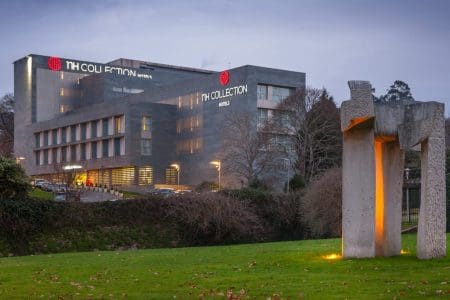Mind-boggling travel rules and the ever-pressing environmental dilemma over holidays makes a winter sun break look like a minefield.
But help is at hand with the Caribbean’s leading environmentally-friendly destination, Aruba, which can promise winter-green-luxury and guilt-free stays to set the eco-conscience at rest.
This Dutch Caribbean haven is well-recognised as a green pioneer in the region. Its initiatives include the banning of all single-use plastic, including plates, cutlery, drinking cups and straws, and all the island’s buses have converted to electric as part of the government’s aim to make it fossil fuel free.
With the majority of its hotel accommodation in the four and five-star category, Aruba also ticks the box for upmarket accommodation, ranging from internationally-known brand resorts to more boutique, privately-owned property. Either way, pampering is guaranteed.
With powder white beaches and guaranteed sunshine with the island’s climate barely changing year-round, a warm winter welcome is also ensured.
One particular hotel resort embraces like a beacon all these attributes. Bucuti & Tara Beach Resort has won 45 awards since 2009 for excellence in recognition of its sustainability, romantic atmosphere, guest experience and eco-certification. It was the inaugural winner of the World Travel and Tourism Council’s Climate Action Award.
The property, nestled against the island’s renowned Eagle Beach, has a multitude of key environmental practices in place, from power and waste disposal to guest registration and food.
For example, guests at Bucuti & Tara can start the day sipping fair-trade, safely procured coffee with a net-zero carbon footprint plus sourcing that follows a completely sustainable supply chain. These same guests might be surprised to find their possible daily Starbucks habit generates 0.6lbs CO2 emissions per expresso.
Food waste is another issue tackled by the resort’s inspirational owner, Ewald Biemans. Approximately a third of the world’s food is wasted – at home, at a restaurant, hotel or an event. In 2016 Bucuti & Tara reduced food waste by 30 per cent, followed by another 30 per cent after the resort partnered with the World Wildlife Fund. Any leftovers are given to farmers for livestock.
With the growing demand for plant-based dining, guests have a wide selection of innovative options other than traditional proteins, helping to decrease the demand for animal agriculture, which produces 14.5 per cent of the world’s greenhouse gases.
Procuring lionfish from Aruba’s fishermen results in a mouthwatering ceviche while removing the invasive menace from local waters. The recently revived Authentic Aruban and Caribbean lunch buffet includes traditional local dishes prepared with local ingredients – something guests can only enjoy on island. Food is cooked using induction burners, which deliver 80 to 90 per cent heat to the pan. In comparison, gas stoves convert a mere 38 percent of the fuel’s energy and electric can only convert 70 per cent, which extends the cooking process, demands more electricity or gas and creates more heat, requiring more air-conditioning in the kitchen.
For more information about Aruba, go to www.aruba.com



